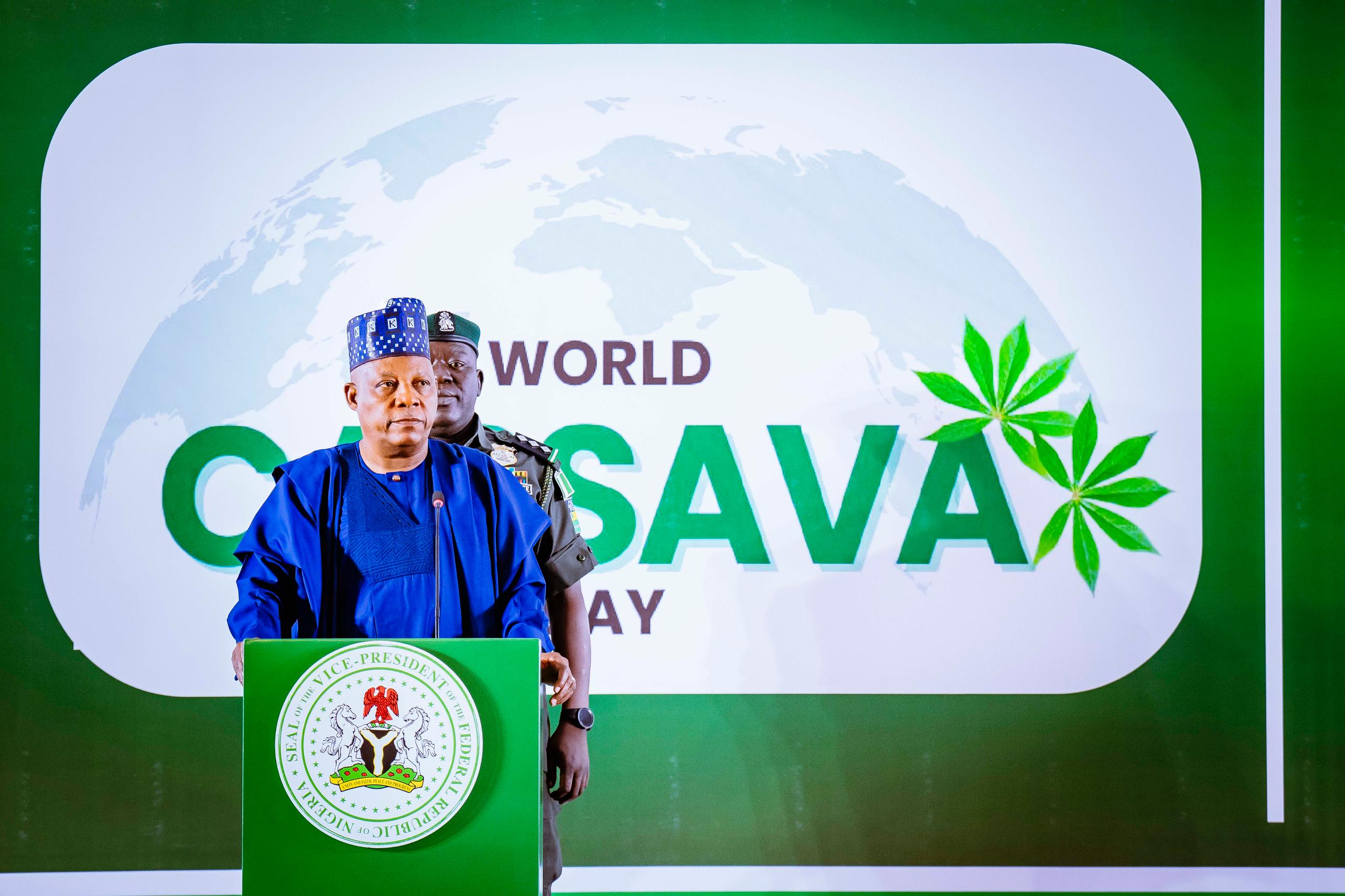Abuja, Nigeria – July, 2025 — Vice President Kashim Shettima has declared cassava a central catalyst in Nigeria’s renewed quest for industrial development and import substitution, reaffirming the Tinubu administration’s commitment to harnessing the country’s agricultural potential for national transformation.
Speaking at the 2025 World Cassava Day celebration in Abuja, the Vice President emphasized that cassava has transcended its role as a staple food to become a vital raw material for industrial applications, including ethanol, starch, animal feed, and biofuel production.
“Cassava is no longer just a food crop; it is now the backbone of a new agro-industrial revolution. We are committed to using it as a tool to reduce import dependency, create jobs, and improve our balance of trade,” Shettima stated.
He noted that under President Bola Ahmed Tinubu’s Renewed Hope Agenda, the administration is focusing on key sectors that ensure food and energy security, with cassava taking centre stage due to its versatility and economic viability. He stressed that Nigeria’s comparative advantage as the world’s largest cassava producer must be translated into real economic benefits.
The Vice President also highlighted ongoing federal interventions to support cassava value chain players — from farmers and processors to exporters — through access to credit, mechanization, and market development.
Minister of Agriculture and Food Security, Senator Abubakar Kyari, in his remarks, called on stakeholders to align efforts with government policies aimed at boosting productivity and scaling agro-processing.
The event brought together farmers, agribusiness experts, researchers, and policymakers to showcase innovations and investment opportunities in the cassava sector. It also featured exhibitions of cassava-based products and panel discussions on financing, sustainability, and market linkages.
The celebration underscored Nigeria’s strategic shift toward self-reliance in food and industrial raw materials, positioning cassava as a pillar for national development.

